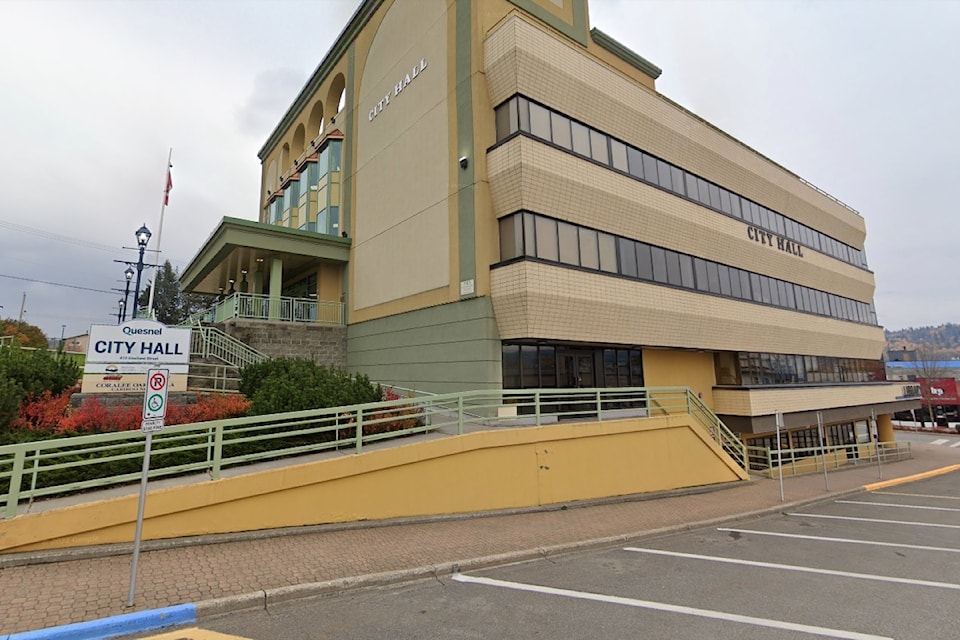Health
Psychiatrist Calls for New Psychiatric Hospital in Northern B.C.

A prominent psychiatrist has urged the Quesnel council to support the establishment of a dedicated psychiatric hospital in Northern British Columbia. Dr. Barb Kane, head of psychiatry at the University Hospital of Northern B.C. (UHNBC), emphasized that the region faces a critical need for such a facility following the closure of Riverview Hospital in 2012. This closure left British Columbia as the only province in Canada without a long-term secure psychiatric institution.
During a recent council meeting, Dr. Kane highlighted the current state of psychiatric care in the region, noting that many patients who are intended to stay an average of two weeks often remain in UHNBC’s 20-bed ward for years due to a lack of suitable alternatives. “One patient stayed nearly five years,” she stated. The overcrowding not only affects psychiatric patients but has repercussions throughout the entire hospital system, leading to delays in surgical procedures and inadequate care for those in crisis.
Dr. Kane explained the dire consequences of this situation, stating, “You can’t tell a suicidal patient or someone brought in psychotic by police to come back next week.” She elaborated that the hospital has to cancel elective surgeries when beds fill up, as surgical operations are often seen as the first casualty of overcrowded conditions. She indicated that psychiatric patients sometimes end up on unrelated wards, including pediatrics or maternity, complicating care and contributing to significant delays in as many as 100 surgeries a year.
The closure of Riverview has exacerbated the situation, which Dr. Kane described as a “gridlock” in psychiatric care. Patients who would have previously received long-term treatment at Riverview are now confined to UHNBC, often beyond the hospital’s capacity. “We are keeping people with a level of violence that we were not built for,” she warned, adding that some patients express feelings of unsafety within the ward.
The province’s forensic psychiatric facility in Port Coquitlam is similarly overwhelmed, only accepting court-ordered cases. This situation leaves many offenders who develop mental health issues while incarcerated without proper treatment, leading to some being released untreated. “We keep them for as long as we can, but we can’t keep people forever,” Dr. Kane noted, highlighting the moral distress experienced by staff in such circumstances.
Dr. Kane pointed out that smaller community-based facilities have been ineffective, mainly because they are unable to manage patients who exhibit violent behavior. “Riverview never had to call the police if somebody got violent,” she explained, attributing this to having trained psychiatric teams and sufficient staff.
In response to the urgent need for a new psychiatric hospital, Dr. Kane and other advocates have initiated a petition. One proposed site is the now-closed Prince George Youth Custody Centre, which features locked units and outdoor space that could be repurposed for patient care. Dr. Kane argued that adapting this facility could be a more cost-effective solution than constructing an entirely new hospital.
Councillor Scott Elliot expressed personal concern about the situation, given that his wife is a nurse at the local hospital. “At times it scares the heck out of me what’s taking place when my wife is getting Code White training to learn how to defend herself and others,” he shared. Code White training is a program designed to equip healthcare workers with skills for violence prevention and de-escalation.
Elliot pledged his support for initiatives that could improve the situation, stating, “Please don’t give up the fight.” Fellow Councillor Laurey-Anne Roodenburg emphasized the need for collaboration among all health authorities in the province, suggesting that a unified push is necessary for meaningful change. “I don’t have the answer right now to how we make that happen, but that’s how it’s going to have to be,” she said.
As the call for a new psychiatric facility gains momentum, the urgency of addressing mental health care in Northern British Columbia remains at the forefront of public discourse.
-

 Politics4 weeks ago
Politics4 weeks agoSecwepemc First Nation Seeks Aboriginal Title Over Kamloops Area
-

 World5 months ago
World5 months agoScientists Unearth Ancient Antarctic Ice to Unlock Climate Secrets
-

 Entertainment5 months ago
Entertainment5 months agoTrump and McCormick to Announce $70 Billion Energy Investments
-

 Science5 months ago
Science5 months agoFour Astronauts Return to Earth After International Space Station Mission
-

 Lifestyle5 months ago
Lifestyle5 months agoTransLink Launches Food Truck Program to Boost Revenue in Vancouver
-

 Technology3 months ago
Technology3 months agoApple Notes Enhances Functionality with Markdown Support in macOS 26
-

 Lifestyle3 months ago
Lifestyle3 months agoManitoba’s Burger Champion Shines Again Amid Dining Innovations
-

 Top Stories2 months ago
Top Stories2 months agoUrgent Update: Fatal Crash on Highway 99 Claims Life of Pitt Meadows Man
-

 Politics4 months ago
Politics4 months agoUkrainian Tennis Star Elina Svitolina Faces Death Threats Online
-

 Sports5 months ago
Sports5 months agoSearch Underway for Missing Hunter Amid Hokkaido Bear Emergency
-

 Politics5 months ago
Politics5 months agoCarney Engages First Nations Leaders at Development Law Summit
-

 Technology5 months ago
Technology5 months agoFrosthaven Launches Early Access on July 31, 2025





















